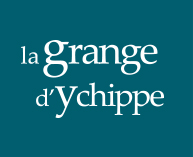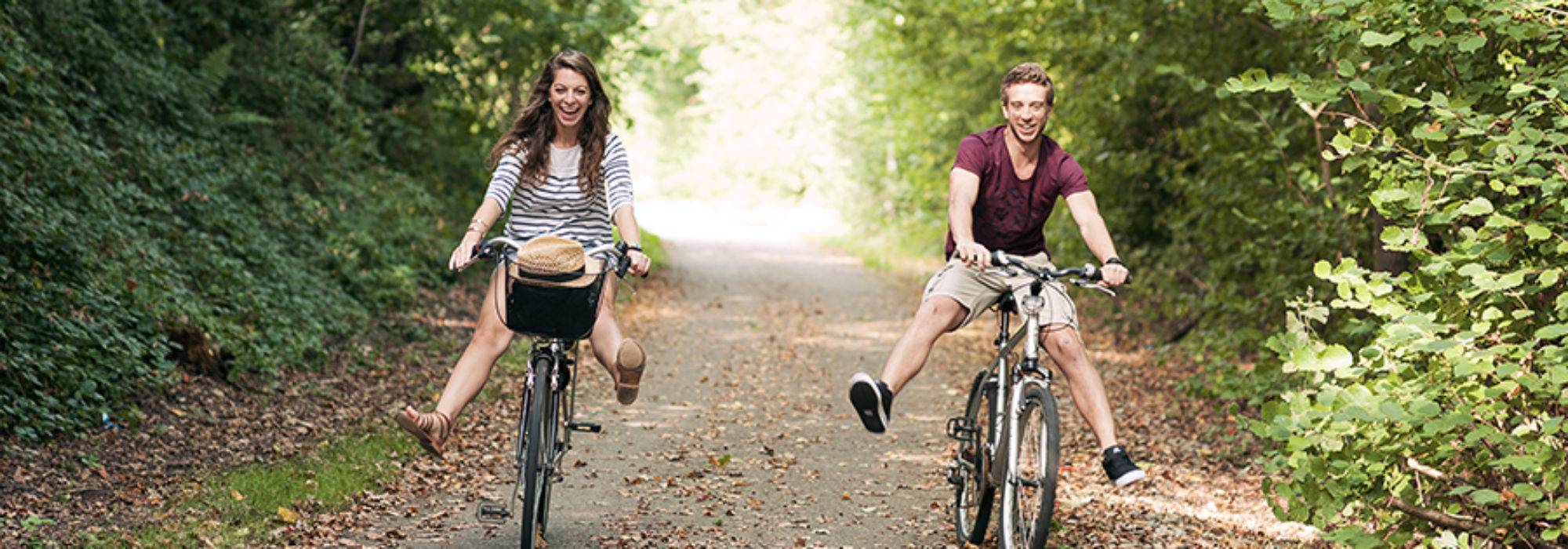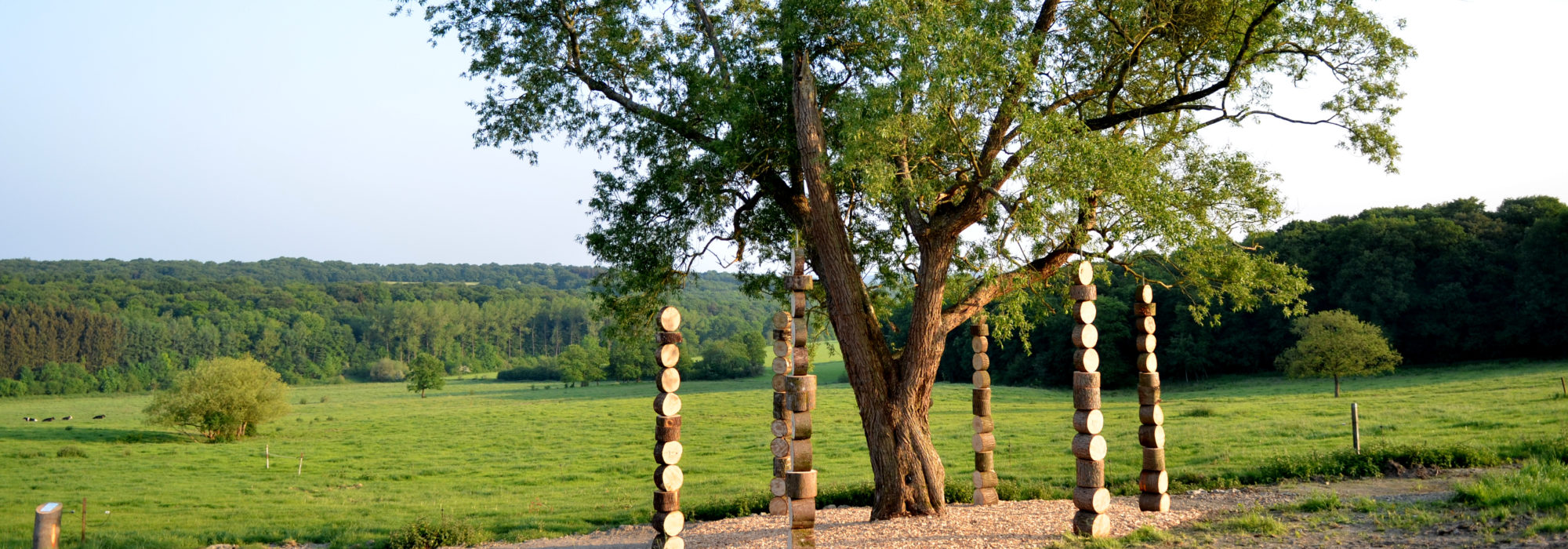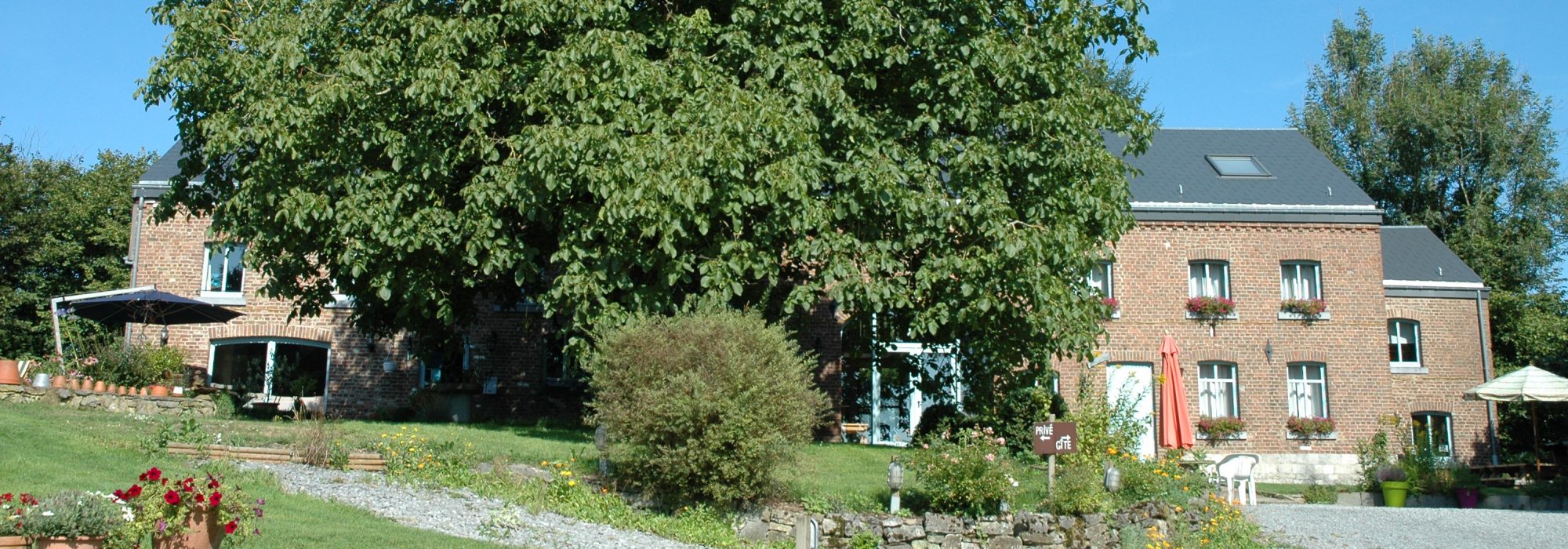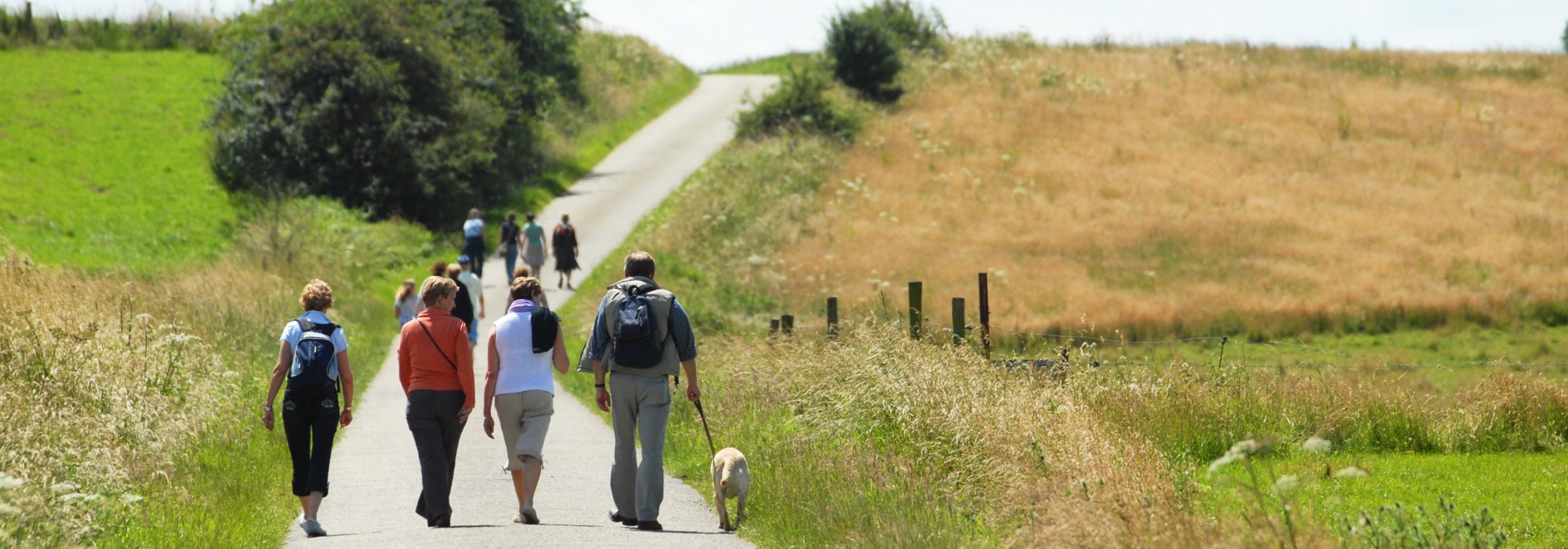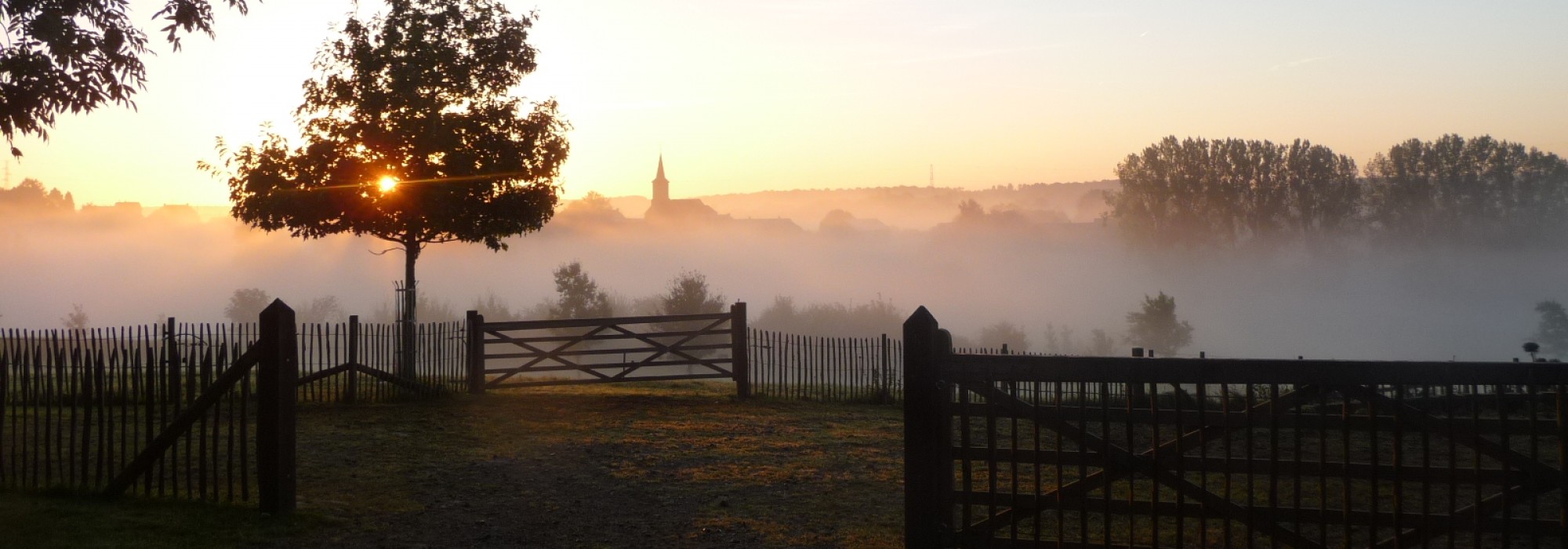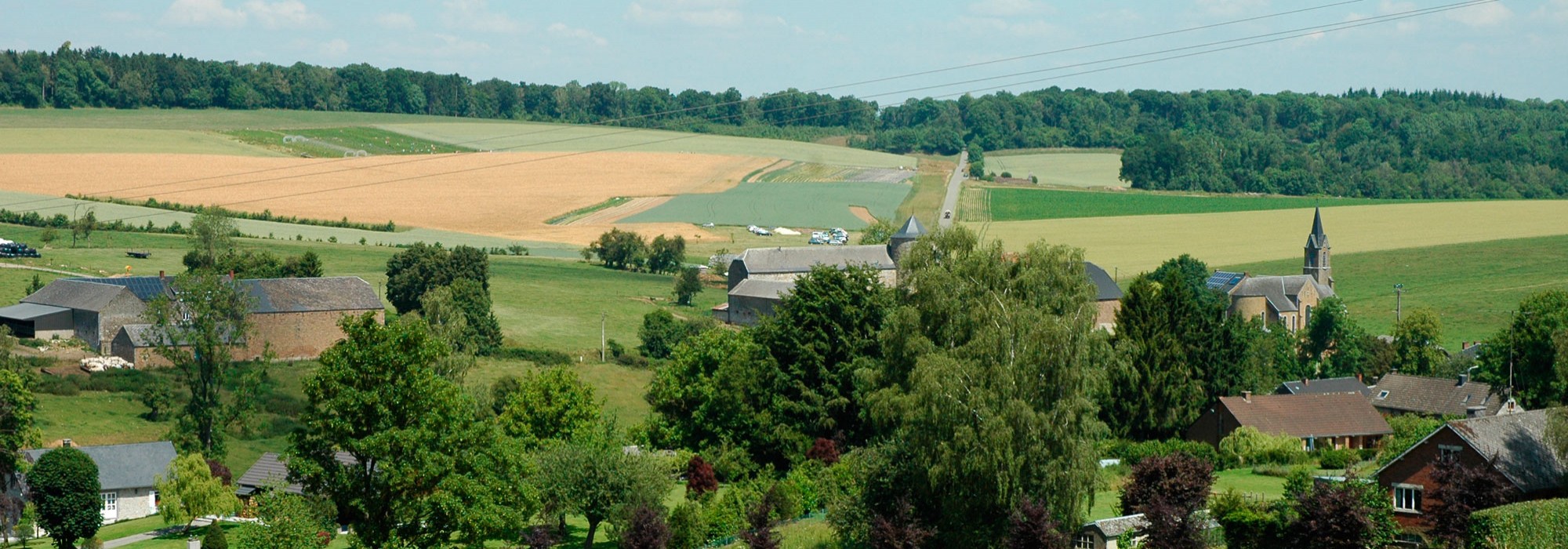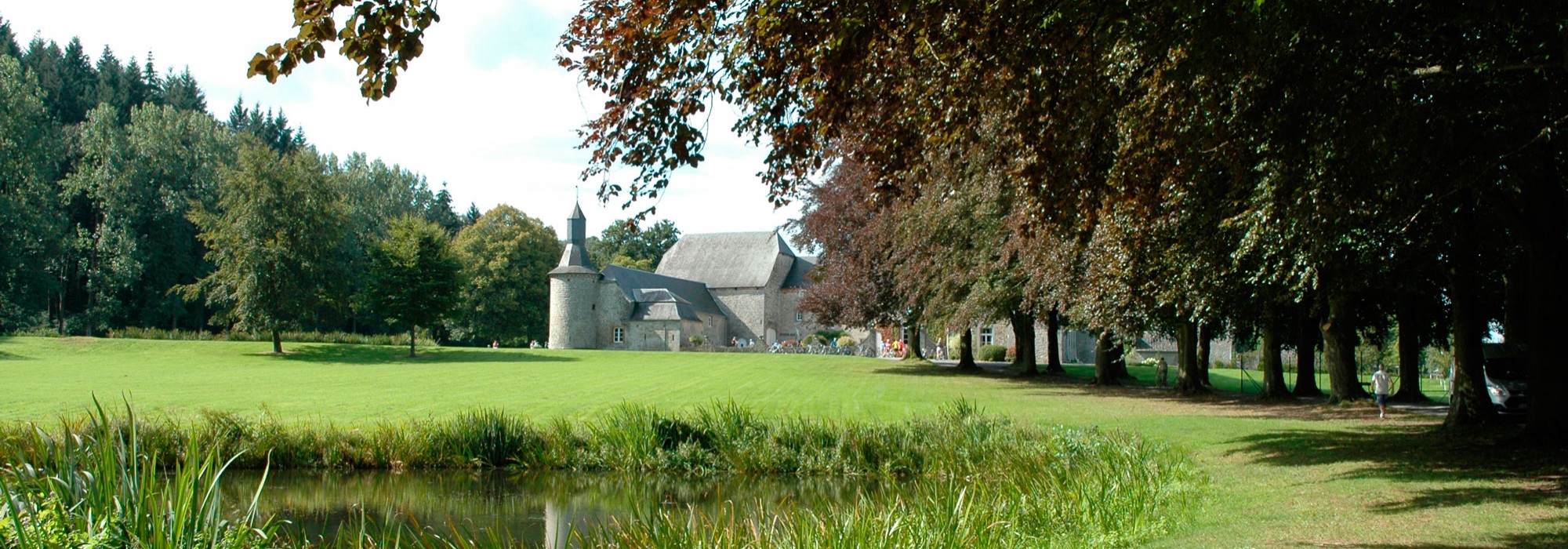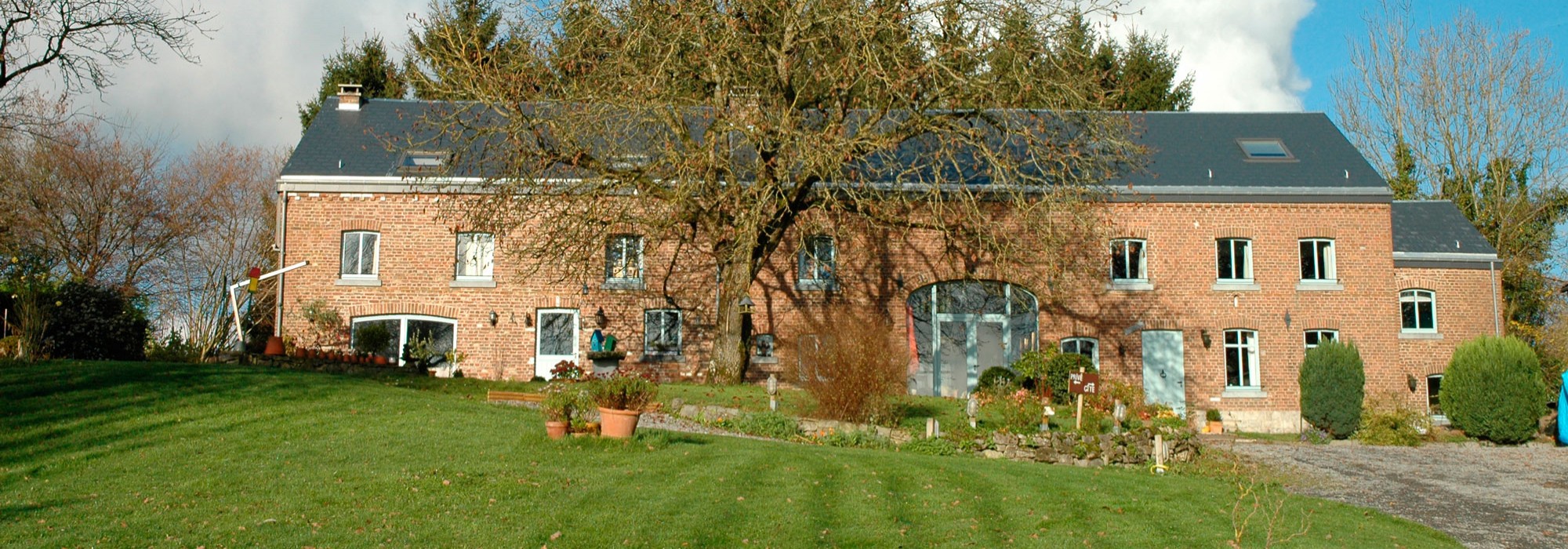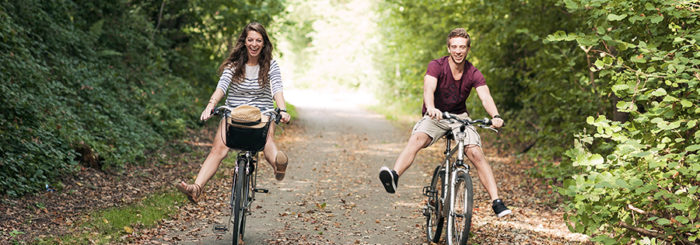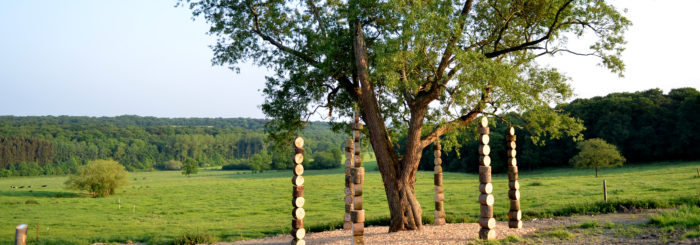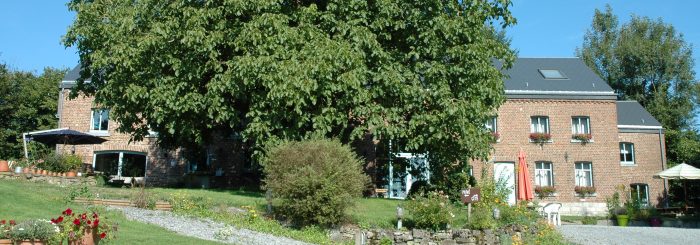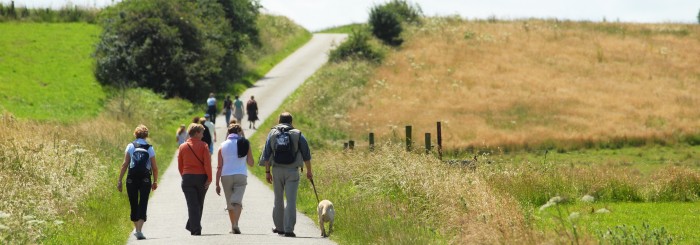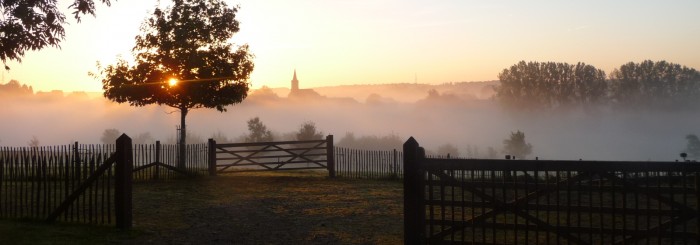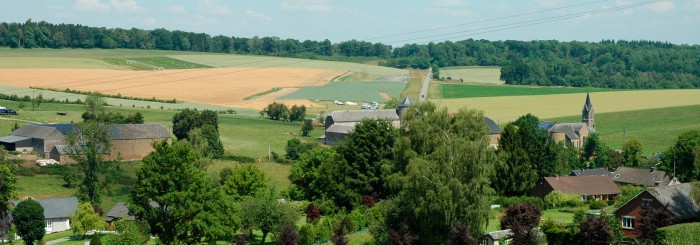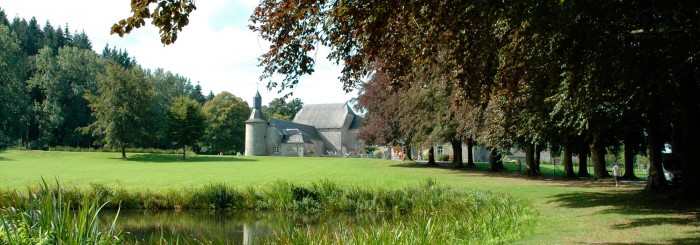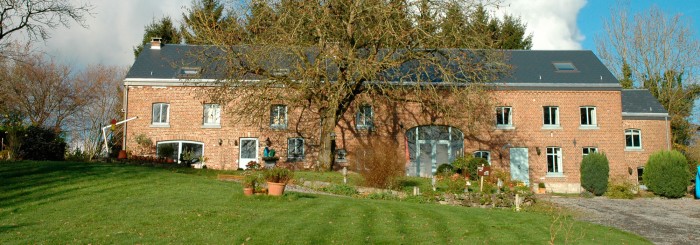
Respect for Nature
 La Grange Ychippe is an old farmhouse dating back from 1850 in the heart of the “Country of Flavours”. To preserve the charm of this very special environment, we are committed to sustainable tourism. Since acquiring the site in July 2012 until the completion of our project, respect for the environment and sustainable development has been at the centre of our concerns.
La Grange Ychippe is an old farmhouse dating back from 1850 in the heart of the “Country of Flavours”. To preserve the charm of this very special environment, we are committed to sustainable tourism. Since acquiring the site in July 2012 until the completion of our project, respect for the environment and sustainable development has been at the centre of our concerns.
La Grange Ychippe respects the environmental legislation and applicable rules in Wallonia, but we wanted to take it a step further. We decided to comply with the requirements and criteria established as part of the international “Green Key” eco-label. Our gite was awarded this prestigious label in January 2014.
For us, for you and for future generations, we implemented measures to minimise our impact on the environment. These actions will help us to protect it and contribute to the preservation of our planet.
An eco-friendly accommodation
Here are some of our commitments and actions to ensure an eco-friendly accommodation, combining comfort and respect for nature :
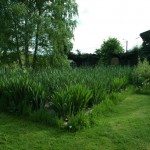 To limit our impact on water consumption:
To limit our impact on water consumption:
- We use ecocertified cleaning-and-laundry products;;
- We wash the bed linen (mattress protection, pillowcases and blankets) on short programmes of maximum 30°;
- Taps and shower are fitted with water saving features;
- Wastewater from the house is not connected to the sewer, it is processed by a natural filtering system in the garden,
To reduce energy consumption:
- We control our water, electricity and fuel consumption every month;
- Lighting is provided by a maximum of energy saving (or LED) lamps;
- The house temperature is automatically set to 20° C in the winter (with rare exceptions);
- Our electricity producer is guaranteed 100% green;;
- The outdoor lighting (car park) is equipped with sensors and lighting at the front of the house is fitted with switches;
- The roof is insulated.
To minimize waste:
- The house contains various different recycling bins for your daily rubbish, batteries, corks, vegetable peelings (compost) and food scraps (you may give them to the hens in the garden).
To preserve biodiversity :
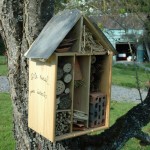 The garden is maintained exclusively by using green products.
The garden is maintained exclusively by using green products.- The watering of the garden is done with reclaimed rainwater, and only in the evening or early in the morning.
- You will find both bird and insect nesting boxes, a shelter for hedgehogs as well as a small pond in the garden.
- The result of our compost is used for our vegetable garden and our plants.
To encourage sustainable development
- Most of the furniture of the cottage is, to the extent possible, bought at flea markets and second hand stores.
- We try to purchase local products or those that have the lowest impact on the environment;
- We are always searching for companies looking to promote their local workforce, or take into account the social dimension.
This environmental policy is also applied in our household. You contribution will help us to protect our environment. The future generation will thank you for that.
Here are some examples or tips that make a (green) world of difference:
Reduction of water consumption:
- Take a (short) shower instead of a bath;
- Do not run the tap when you brush your teeth but use a glass;
- If you find a leak, thank you for warning us quickly;
Waste Management and reduction:
- Properly sort waste using appropriate containers;
- Take along reusable bags for shopping;
Reduction of energy consumption :
- Turn off electronic or electrical devices (computer, TV, ..) instead of leaving them in standby mode;
- Remove the charger from the plug as soon as your phone (camera , ipod, .. ) is charged;
- Reduce the heating of the rooms during the day and particularly when you open the windows;
 Water conservation and biodiversity :
Water conservation and biodiversity :
- Use of eco-labeled products for your daily toiletries, to do the dishes or laundry, use chlorine free toilet paper.
- Do not throw anything, except toilet paper, in the toilet;
Preservation of air quality :
- Encourage carpooling when travelling ;
- Rent bikes
For Sustainable Development :
- Discover local products and buy local vegetables and seasonal fruit.



